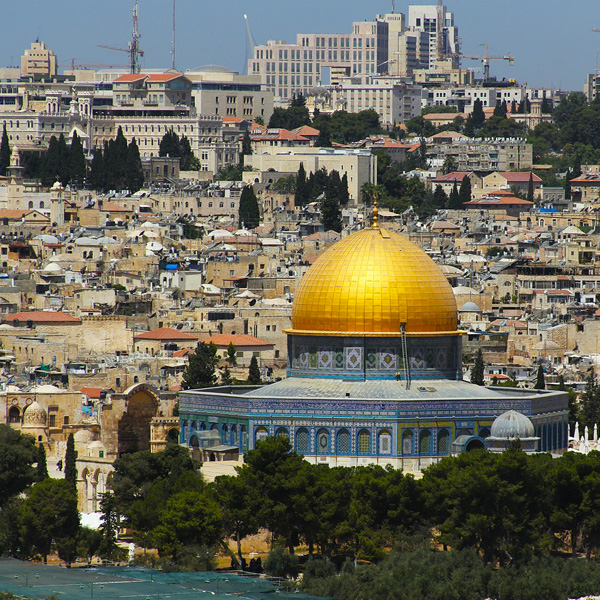Messianic Jews and Palestinian Christians met together in Limassol, Cyprus, 26-30 January 2015 to discuss, pray, and work towards reconciliation.
The Lausanne Initiative for Reconciliation in Israel/Palestine (LIRIP), an initiative of the Lausanne Movement, hosted the conference. Its vision is ‘to promote reconciliation within the body of Christ and our wider communities in Israel and Palestine by creating a network that encourages, under the auspices of the Lausanne Movement, models of gospel-based, Christ-centered reconciliation that will have prophetic impact in relation to the Israeli-Palestinian conflict.’
Each day the participants studied Through My Enemy’s Eyes: Envisioning Reconciliation in Israel – Palestine by participants Salim J Munayer and Lisa Loden. Richard Harvey, British Messianic Jewish theologian and Co-Chair of LIRIP, said:
‘Our discussions were cordial and mutually respectful, but we did not flinch from addressing difficult issues, and frankly expressing our disagreements. Salim and Lisa’s book is a most valuable resource for all who are interested in the challenges and possibilities of reconciliation in the region.’
Palestinian Christian Munther Isaac, Co-Chair of LIRIP and Professor at Bethlehem Bible College, added:
‘We met each day to pray and read the Scriptures together, sharing our perspectives and recognizing our differences. It is important for our communities to talk to one another openly and in a Christian spirit. Reconciliation in our context is a very challenging and difficult endeavour, but the cross compels us to walk in this path.’
Salim Munayer, Director of Musalaha Ministry of Reconciliation and co-author of Through My Enemy’s Eyes, expressed:
‘It is our belief that Christ’s death and resurrection is the foundation of reconciliation, and that forgiveness and healing can only come through following his example and obeying his word. We need to know and demonstrate this together as Israeli and Palestinian, Arab and Jew.’
Lisa Loden, co-author of Through My Enemy’s Eyes and Head of Leadership Development at the Nazareth Evangelical Theological Seminary said:
‘The Palestinian and Messianic teams recognized their areas of disagreement and the need to work together to understand them better. We have different and often conflicting histories, identities, and theologies. Our understandings of justice, peoplehood, and the land are often marked by anger, hurt, and pain. But, in the spirit of Jesus, we sought to listen carefully to each other’s views and respond in honesty, love, and charity.’
Trevor Morrow, former Moderator of the Presbyterian Church in Ireland and co-facilitator observed:
‘As we saw in Northern Ireland, it is vital for to meet and pray together across the divides of politics, history, and religion. I am delighted that the group has agreed to future meetings, to develop their personal friendships, and invite others to join them. The younger generation in particular are looking for hope in the midst of this long-term conflict, and are willing to work together to develop this network and others for reconciliation.’
Chris Wright, Director of the Langham Partnership and facilitator at the meetings added:
‘When Christians, as individuals or organizations, call on Messianic Jews or Palestinian Christians, with pressure or inducements, to break their fellowship in Christ by separating from each other, this is not only unwelcome outside interference in their pain, but must be denounced as sin. As The Cape Town Commitment says, “When we live in unity and work in partnership we demonstrate the supernatural, counter-cultural power of the cross. But when we demonstrate our disunity through failure to partner together, we demean our mission and message, and deny the power of the cross.”’
Grace Mathews, Vice-Chair of the global Board of Directors for the Lausanne Movement, was encouraged by the meeting.
‘I wholeheartedly support this initiative. I would ask all Christians to pray and support the efforts our Palestinian and Messianic sisters and brothers are making to come together across the divides, and find reconciliation at every level through the radical love of Jesus.’
For more information and details of future meetings, contact the Lausanne Movement.
